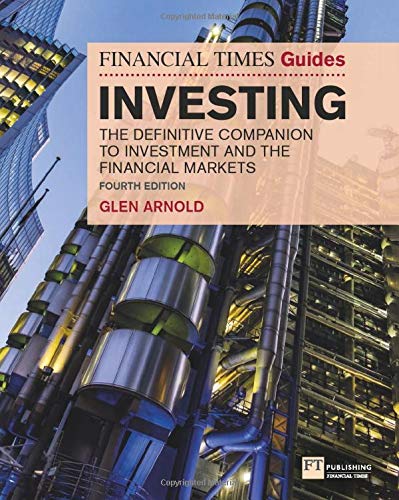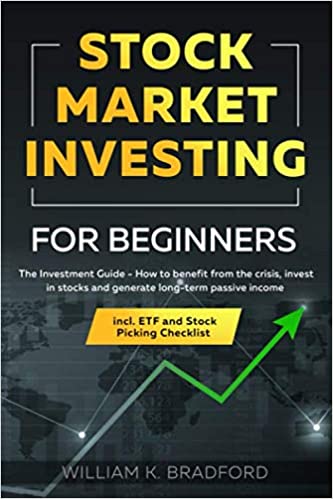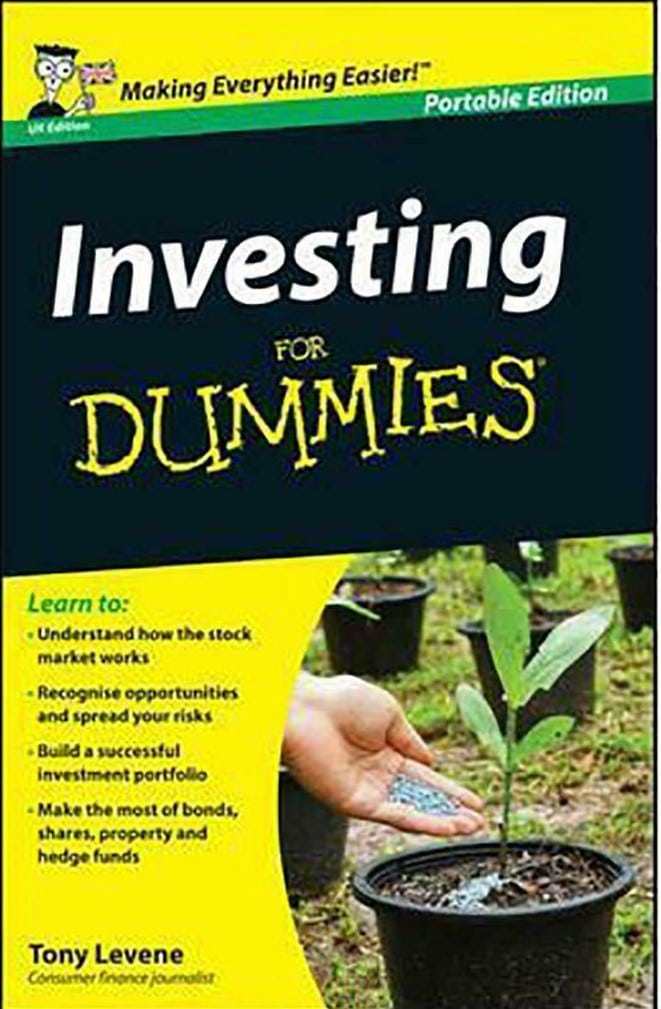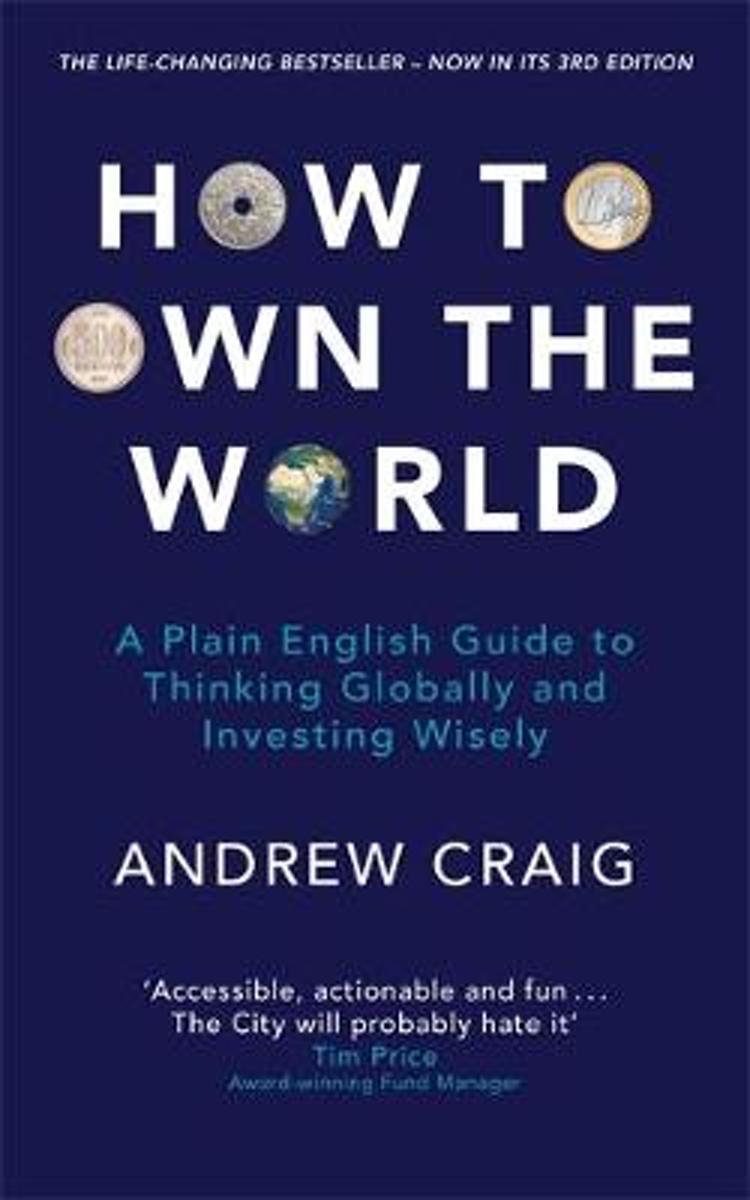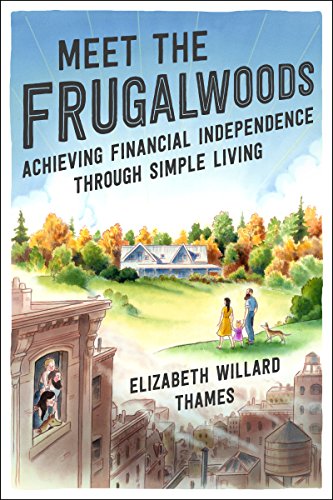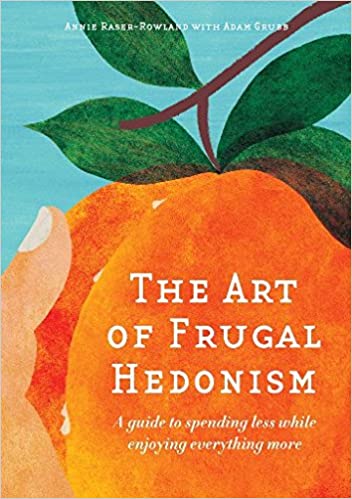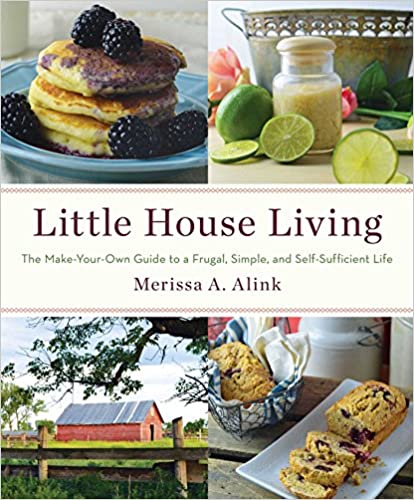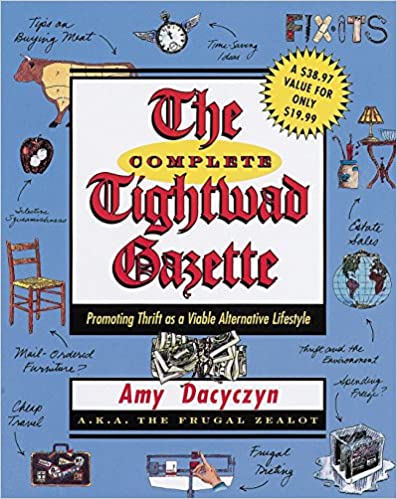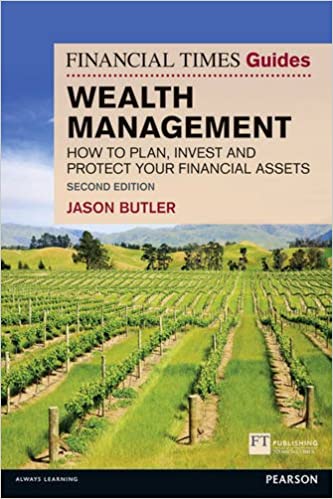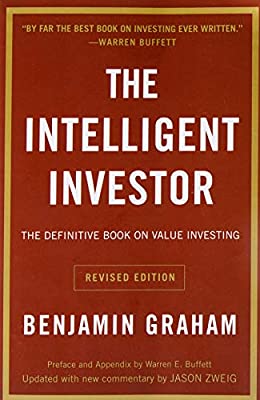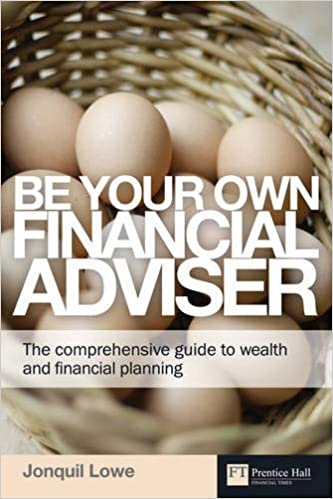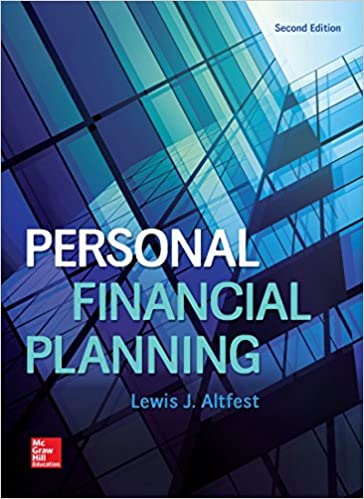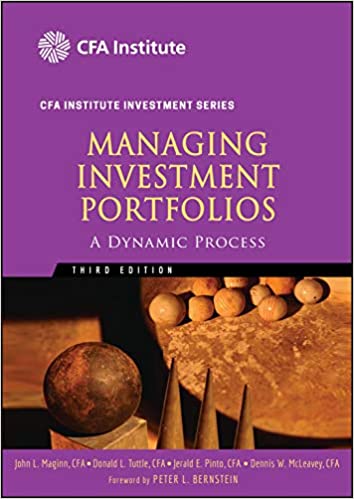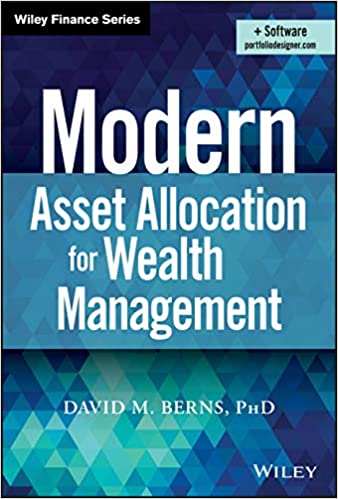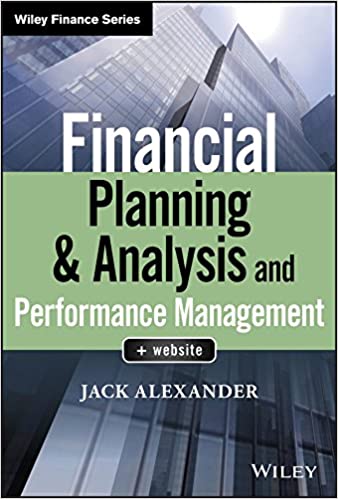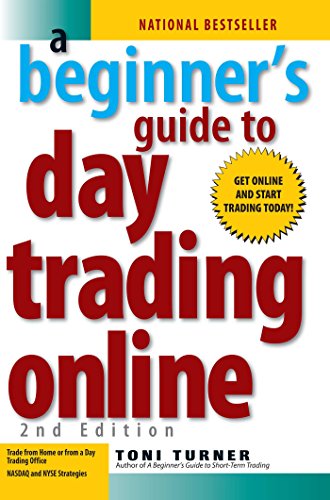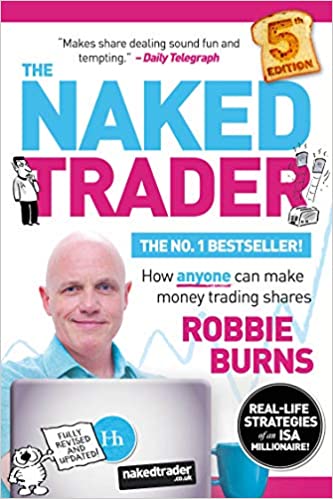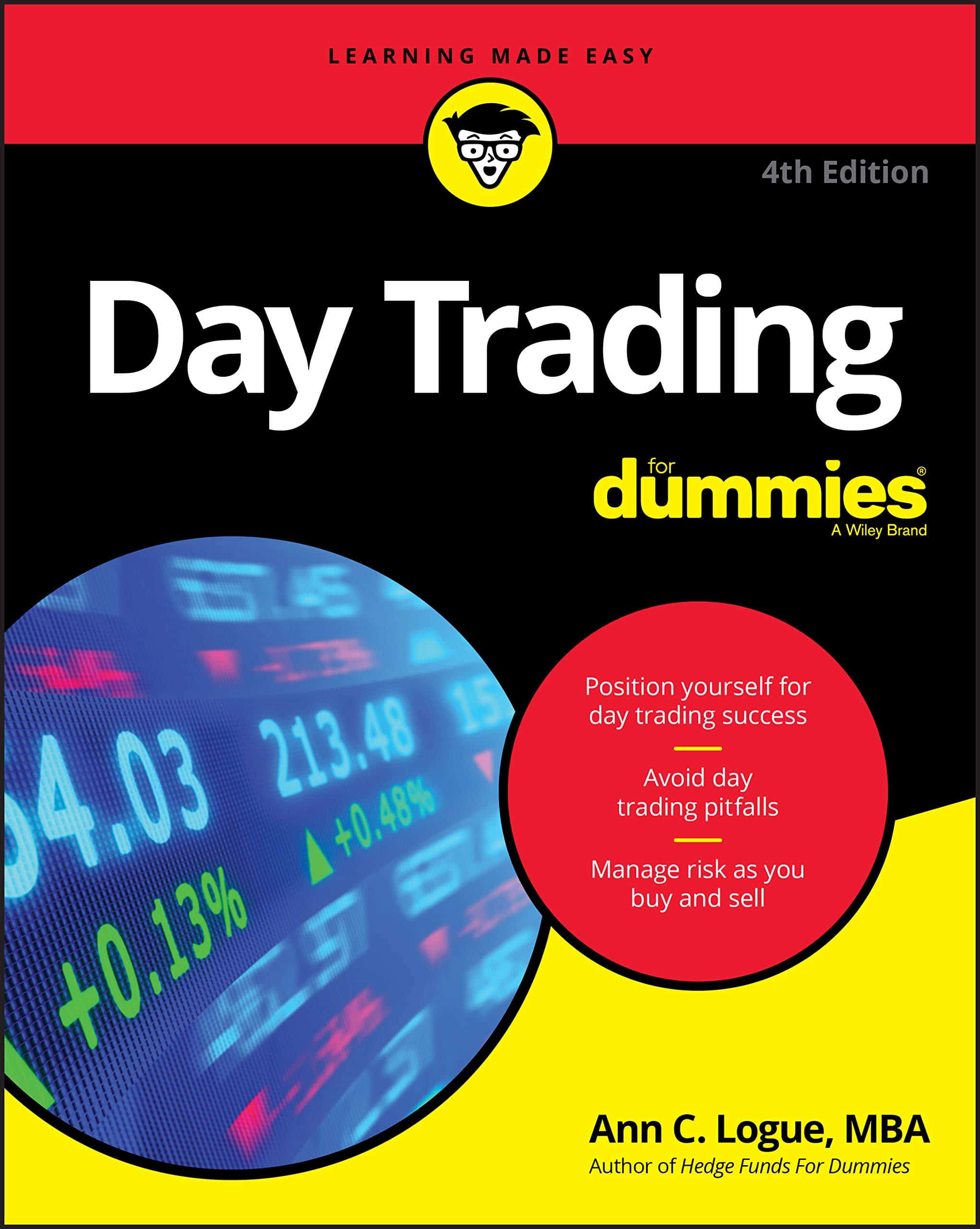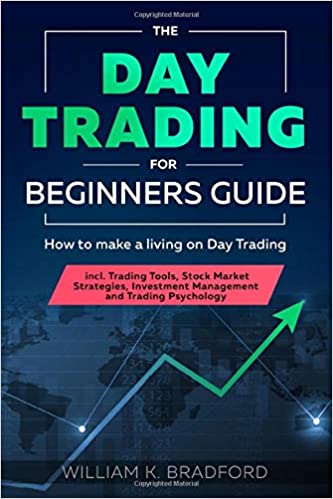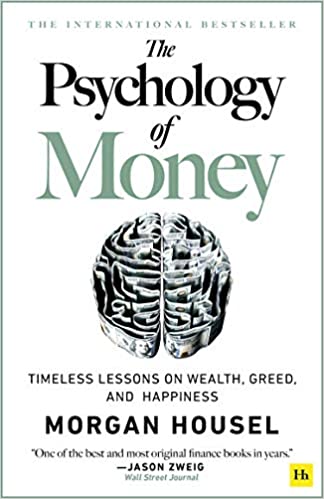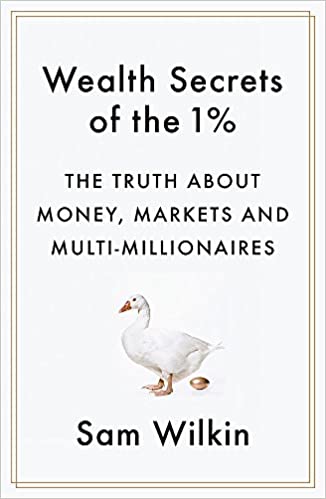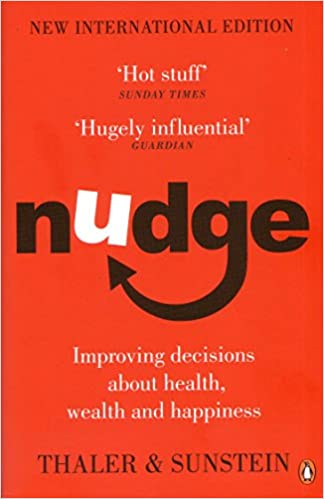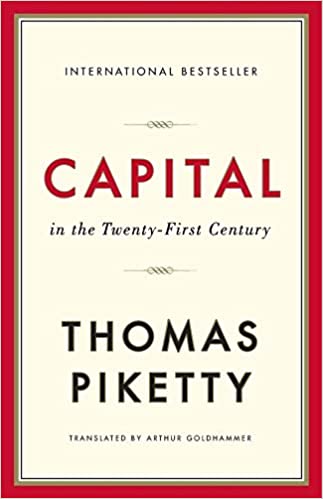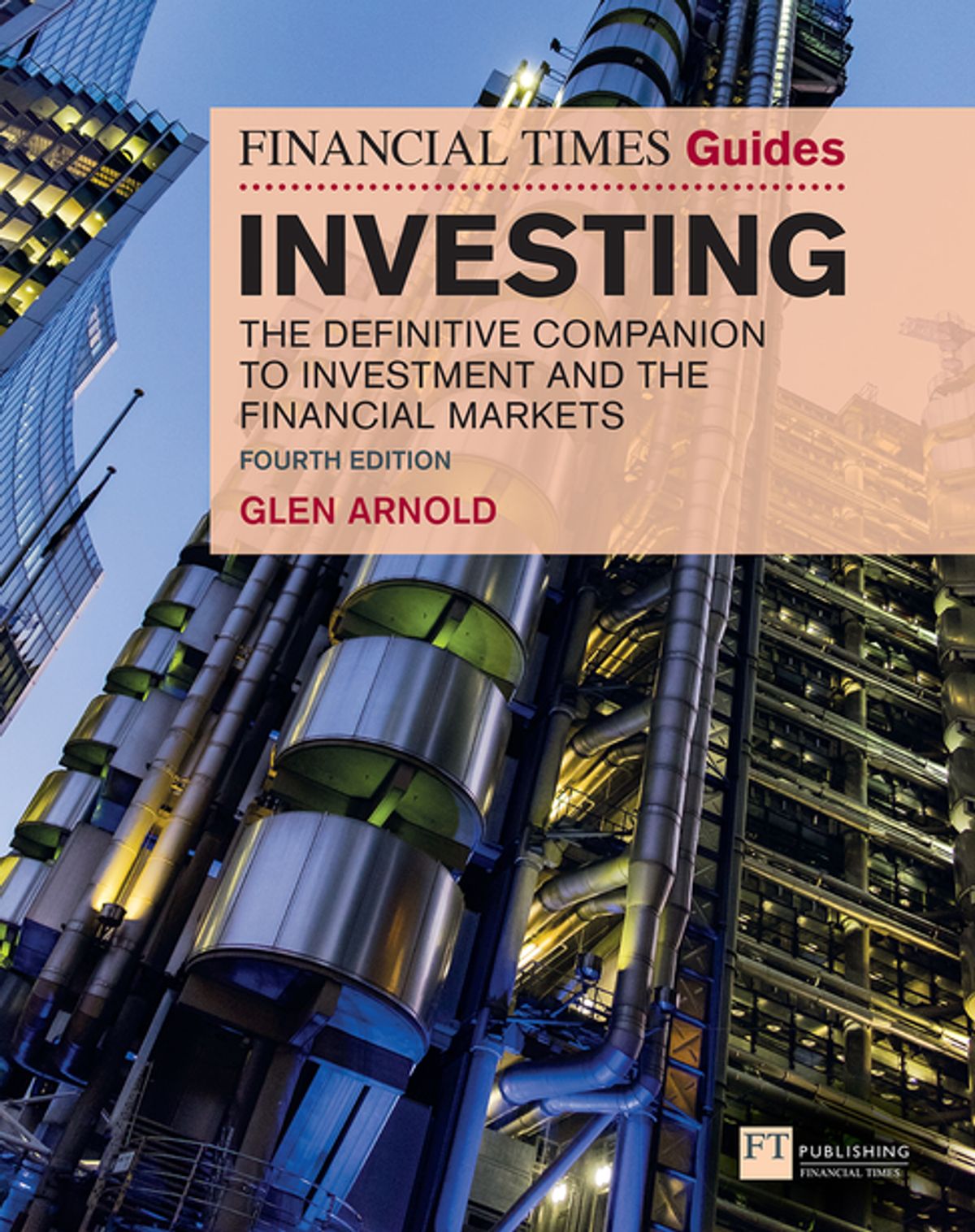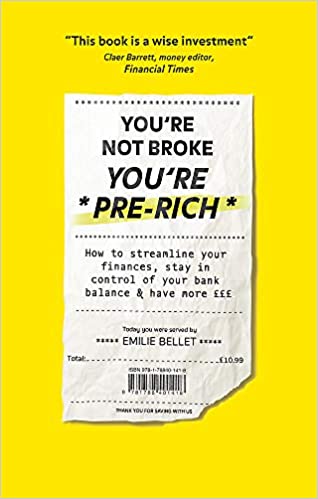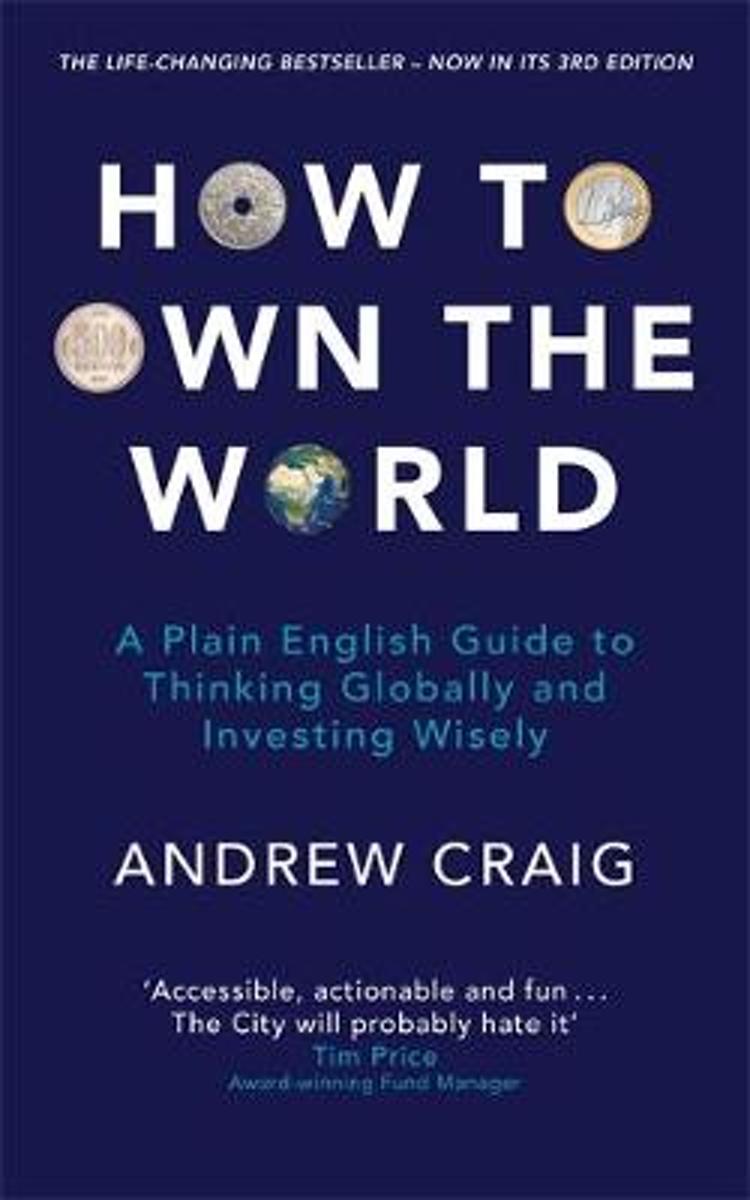Last updated: 20 December 2021. Here's my simple listing of the best investing books for students.
Financial Expert also features other categories of finance books that students may be interested in:
- The best books about saving money
- The best books about budgeting & money management
- The best money mindset books
If you're interested in business generally, check out our business books and entrepreneurship books pages, which feature titles that are sure to inspire you.
The best investing book for students is an introduction to both risk and reward
For most people, 18 - 21 is the age at which they have the first opportunity to earn, save and invest serious amounts of money. Some parents are quite pro-active and buy investing books for teens to begin this experience earlier. But for the majority, it is the student loan, grants or part-time jobs held down while attending a university that provides the first injection of cash into our finances, and opens the door to investing.
This means that it's also the first time in our lives where we have been exposed to financial risk. This is new and can be scary. Many people stay away from the stock market their entire lifetimes because of this uncertainty.
The perfect investing book for students will act as a wise guide into this world of risk and reward. Understanding how risk works, how it impacts our wealth and how it can make us feel are all essential lessons. If you ask any experienced investor about their greatest investment mistake; they will likely regale a tale that involved them taking on too much risk, or them reacting poorly due to emotions brought on by risk.
All investing books for students below are perfect as a first investing book
It should go without saying that all of the books listed below are suitable for complete beginners and will take the time to explain all technical terms and concepts to the reader.
With prices ranging from £5 - £25, stocking up on a few of the best investing books for students can deliver the same value as an expensive seminar for only a fraction of the cost. They can even be read for free with Amazon's Kindle Unlimited free trial.
Click on any title below to see the latest price from Amazon, you'll be shocked at how affordable the most popular titles are. As an Amazon Associate, I earn a small commission from qualifying purchases which helps to support this site. This does not impact how I compile the list. Happy reading!
Discover prime books on investing and finance
No boundaries, just your curiosity- Invest with confidence
- Finance industries
- Real estate & real assets
- Exotic investments
- The bigger picture
Books reviewed
Financial Expert 2024 Book Awards
Gold Prize
Financial Times Guides: Investing by Glen Arnold
Stock market investing books for students
The best overall guides to investing in the stock market which are perfect as a first investing bookBooks about saving money by living frugally
Guides to cutting back to save and invest more each monthThe best investing books best financial planning books for students
Books on how to do it all, from saving to investing and planning for retirement. A holistic guide to finance.Detailed financial planning books for finance students
Textbooks which educate keen finance students about financial planning. Covering topics such as budgeting, allocating money to a diversified portfolio of investments, and supplementary topics such as insurance & pensions. Ideal for financially-minded students who wish to become personal finance experts.Financial Expert tip: The hardcover versions of these financial planning books are in high demand! They can recoup up to 80% of their cover price when sold in good used condition.
Therefore if you plan to eventually sell back a title, your net cost could be as low as 20% of the cover price.
Click on the covers below to look at the used prices of these titles on Amazon to understand what cash back you could expect.
Day trading books for beginners
How to buy and sell shares over a short period to target higher returnsWealth as philosphy
Thoughtful titles which look beyond the usual investing topics to give students an interesting insight to the world of financeDownload all these investing books for students for free with Kindle Unlimited
You DON'T even need a Kindle device to download booksHere's a useful tip that will save you £100+ on investing books for students. Sign-up to Amazon's Kindle Unlimited free trial, which offers access to all titles for free for 30 days.
- There's no obligation to continue with a paid subscription.
- You don't even need a Kindle to enjoy - any device will do.
If you're cost-savvy, you'll already be calculating the savings you could unlock and the knowledge you could gain by downloading 5 books over the next 30 days.
My Top 5 Investing Books for Students 2022
Click covers to see latest reviews and prices1. Investing (FT Guide) - Glen Arnold
Financial Expert Rating:
Synopsis:
"The Financial Times Guide to Investing is the definitive introduction to the art of successful stock market investing by debunking the myth that investing is only for the wealthy.
Bestselling author Glen Arnold covers the basics of what investors do and why companies need them, through to the practicalities of buying and selling shares and how to make the most from your money. Learn how to understand different types of investment vehicles, pick the right companies and understand their accounts so you can compile and manage a sophisticated portfolio.
The fourth edition of this investing classic has been thoroughly updated and will give you everything you need to choose your shares with skill and confidence."
Who this book is for:
A comprehensive guide for those who are serious about immersing themselves in the world of investing.
If you're new to investing, I personally recommend this book as the best resource for understanding:
- How the stock market works
- How companies report their results
- How to invest your money to earn dividends and capture growth in the value of top companies.
Most investing books for students will focus entirely on the experience of the individual; what do you need to buy, where do you buy it, and how long do you hold it for.
This title flips the equation by revealing the inner workings of the investments themselves.
This knowledge will help empower you as a student, because by learning about the stock market itself at the same time as money-management principles, will help expand your comfort zone.
Financial Expert Rating:
Synopsis:
"The easy way to demystify the intimidating world of investing in the UK market.
Packed with tons of expert advice, Investing For Dummies UK 4th edition shows you step-by-step how to make sound, sensible investment choices whatever your budget.
All the major investment categories are covered for the smart beginner, while more advanced and alternative investments are presented for the more adventurous and experienced."
Who this book is for:
It's one of the best selling investing titles on Amazon for a good reason; Investing for Dummies is perfect for beginners and therefore has a huge potential audience who would benefit from owning it.
Where Investing for Dummies excels is in the breadth of topics covered. This is a title which aims to tell you a little about a lot.
As a result, you'll finish this book knowing more about buying shares, weighing up the pros and cons of pensions, as well as being acquainted with the UK tax system for investors.
I personally rate this title highly because (an earlier edition) was a regular reference point for me when I began investing a decade ago.
Financial Expert Rating:
Synopsis:
"Money: A User’s Guide cuts through all the panic of personal finances. It will teach you how to get a great credit score, how to save hundreds on bills, and offer practical advice on every difficult conversation you’ve been avoiding including:
• Housing (for renters and buyers)
• Student Loans
• Pensions
• Paying off debt
• Stocks and shares
• Ethical investments
• Money and Mental health
• Money and Love
This essential book will give you the confidence and clarity to take back control of your bank account, enabling you to thrive in all areas of your life."
This personal finance book is for:
This concise and stylish Sunday Times Bestseller caught my eye with its interesting cover, but it's the content that kept me interested.
Money: A Users Guide is an entry level personal finance book designed to be the first (and potentially last) personal finance book a student could need.
Succinct chapters give the impression that this is a reference guide, rather than an essay to be read from start to finish.
Jump in and learn what you need to know to kick your personal finances into shape, then close the book. Easy!
As the book covers many areas of personal finance, it doesn't devote a tonne of pages to investing in the stock market, but it more than makes up for this by arming any student with a full toolkit for money management.
Financial Expert Rating:
Synopsis:
"This essential handbook will help debunk the financial jargon and break the money taboo. Packed with actionable tips and no-nonsense practical advice, You're Not Broke You're Pre-Rich will teach you how to make your savings work for you, how you could invest your money, why you need to understand your pension and why your financial health is just as important as your mental and physical health.
This indispensable manual will be your comprehensive guide to financial freedom, giving you the confidence and conviction to regain control of your bank balance and live a happier, richer life."
This personal finance book is for:
I absolutely love the tone and delivery that Emilie Bellet brings to this refreshing saving money book.
I mean the title really says it all, doesn't it? It hits you with an almost exuberant level of optimism, before you step back and realise that of course, with the right tools and tricks, we will all hopefully look back at our current situation and regard ourselves as simply being on the journey to becoming richer.
This book covers topics such as how to:
- Rent smart
- Buy a home
- Get a better salary
- Manage a credit card
- Understand your net worth / credit score
- Save more money
- Live within your budget
- Build a pension
- Invest
- Pay off your debt forever
Financial Expert Rating:
Synopsis:
"Discover the money secret understood by virtually every rich person in history. Turn hundreds into millions through the power of compound interest.
How to Own the World shows you that:
- No one is better placed than you to make the most of your money.
- You can do better than many finance professionals.
- Making money from your money is easier than you think.
- It's easier today than ever.
- It's time to start now."
Who this book is for:
An opinionated and informative title by former US Congressman speech writer and fund manager Andrew Craig.
A title aimed at beginners, yet with plenty to offer to financially literate readers, such as those from professional backgrounds.
If I had a bone to pick, it would be that Andrew advocates a portfolio which could include investing in commodities such as gold bullion. I usually recommend that students and other young investors focus on the traditional asset classes such as stocks & shares (see books), which produce dividends (see books), or bond investing (see books).
The Financial Expert™ Best Investing Book Challenge

I challenge you to read one investing book per month and see if it revolutionises your investing style!
The Financial Expert™ Best Investing Books for Students Challenge is a well-loved feature of this website.
Replace your stuffy course reading list with a new reading list of 12 investing titles which will change the trajectory of your financial future forever.
University / college is the perfect time in your life to absorb wisdom about how to save money, build wealth and make it work for you.
As you have your whole life ahead of you, you have one of the most powerful tools at your disposal: the power of compounding.
If you, as a student, set a goal to retire at 50, this still provides 30 years over which your investments can earn interest, dividends and capital gains. That's a significant amount of time.
By reading widely now about saving and investing, you will be able to make the most of that time by investing sensibly and properly in your early working years.
Don't become one of those adults who only realise at the age of 45 that they need to save £300,000 in the next 15 years otherwise they'll be retiring into a lower standard of living!
Read now, save now, and consider investing now to set aside wealth for your future as soon as you begin your career.
The rules of the best investing book for students challenge is simple:
I challenge you to read one investing book per month for the next year, and find your new favourite!
One book per month. 12 books in a year. That's quite a stack of titles, but at the same time, this is a snails pace.
Some of the best investing books are only 350 pages long, and take between 3-5 hours to read. So as a monthly commitment, a single money book isn't actually a big ask.
The bigger ask is to keep this up for a full year, allowing you to move from newbie, to rookie to intermediate investor by this time next year!
Some guidance
- I found it helpful to stock up on books for the next few months, so that when a new month rolls around, my next book was my bed-side table asking to be opened!
- Pick a variety of styles. This will keep the challenge fresh and increase the diversity of opinion.
- Pick at least one book that you don't think you would enjoy, this book might be the one that surprises you the most!
- If you're time-starved, audio books are absolutely fine!
Where to begin?
My list of the 5 best investing books for students above is as good as any place to start, as I have consciously included a mix of different writing and investing styles to ensure that it caters to a wide audience.
Good luck!
Investing as a student: Does it make sense?
"An investment in knowledge always pays the best interest."
Let's finally address the elephant on the page: students are not a wealthy demographic.
Whether it's the high cost of corporate tax textbooks, tuition fees or student accommodation; many students find it difficult to manage financially during university.
Depending on the financial background of a student, and their parents' ability to help them pay living costs and university fees, different students have very different experiences.
In the UK, tuition fees are always covered by a student loan. A maintenance loan also provided by a government-sponsored organisation also covers accommodation costs (in most cases). This leaves day-to-day living costs such as food, course materials, and activities which need to be paid for.
On a means-tested basis, some students receive non-refundable grants from their university to cover these costs. Others receive a stipend from their parents. A final group must find a part-time job to raise the cash to cover these costs.
My personal view is that if you need to take a job to cover your costs (which is taking 10-30 hours per week away from your studies), then now is probably not the right time to be investing.
If you have surplus money to invest, it implies that you could have worked fewer hours and devoted more of your energy to the exercise of learning - which let's not forget, is the entire reason why you are at University.
I would say that investing while as a student is only appropriate for those with pre-existing savings, or who can manage to spend less than they receive each week in financial support.
While at university, my non-tuition loans and grants came to about £110 per week. I lived frugally in an attempt to save as much of this as possible. My journal shows that I spent an average of £40 - £50 per week during term time, meaning I could hope to save up to £1,000 per year which could go towards investments.
This is what I visualise when I talk about investing as a student. I'm picturing modest sums being saved gradually in a way that won't distract from the core purpose of being at university.
I won't pretend that investing £2,000 at the age of 20 will allow you to retire by 30. It's not the capital or the amount invested that matters at this important stage.
Investing as a student is about getting excited about money. It's about setting some grand financial objectives. It's about getting practiced at the art of investing, ready for when you can put away 'real money' from your salary during your career.
